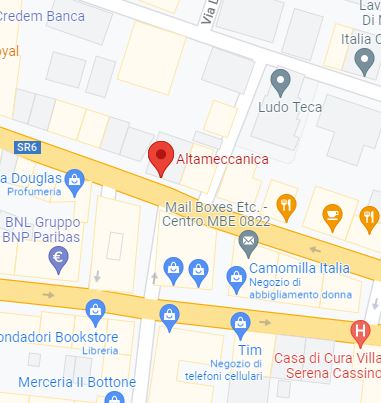OUR ACTIVITIES
Professionalism and competence at our customer service
Contact us for a consultancy or a quotation
Servizi Generali
Industrial Processes, as well as including all the activities in order to obtain products and/or services, are also necessary to enable the production structure to operate correctly and are listed under the name of General Services. In general, they include Electrical installations and High, Medium and/or Low voltage transformer stations, pneumatic, refrigeration, fire-fighting, water and hydraulic systems, heating and air-conditioning systems and everything related to plant maintenance.
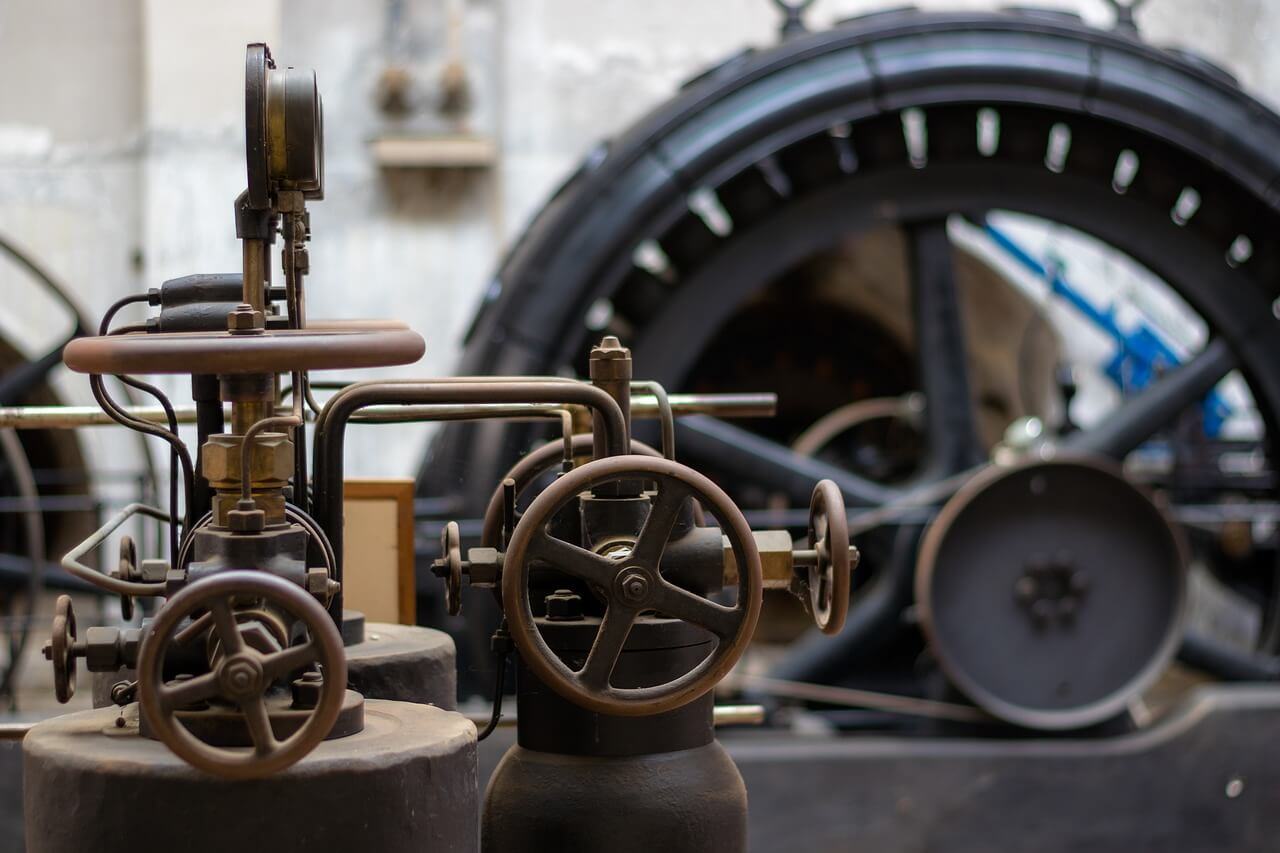
Altameccanica is specialised in design, realization and management of specific maintenance plans for direct production plants and Industrial General Services. Thanks to its long experience and to its staff technical training, Altameccanica is able to submit specific control checklists, procedures and specific operating instructions for each plant.
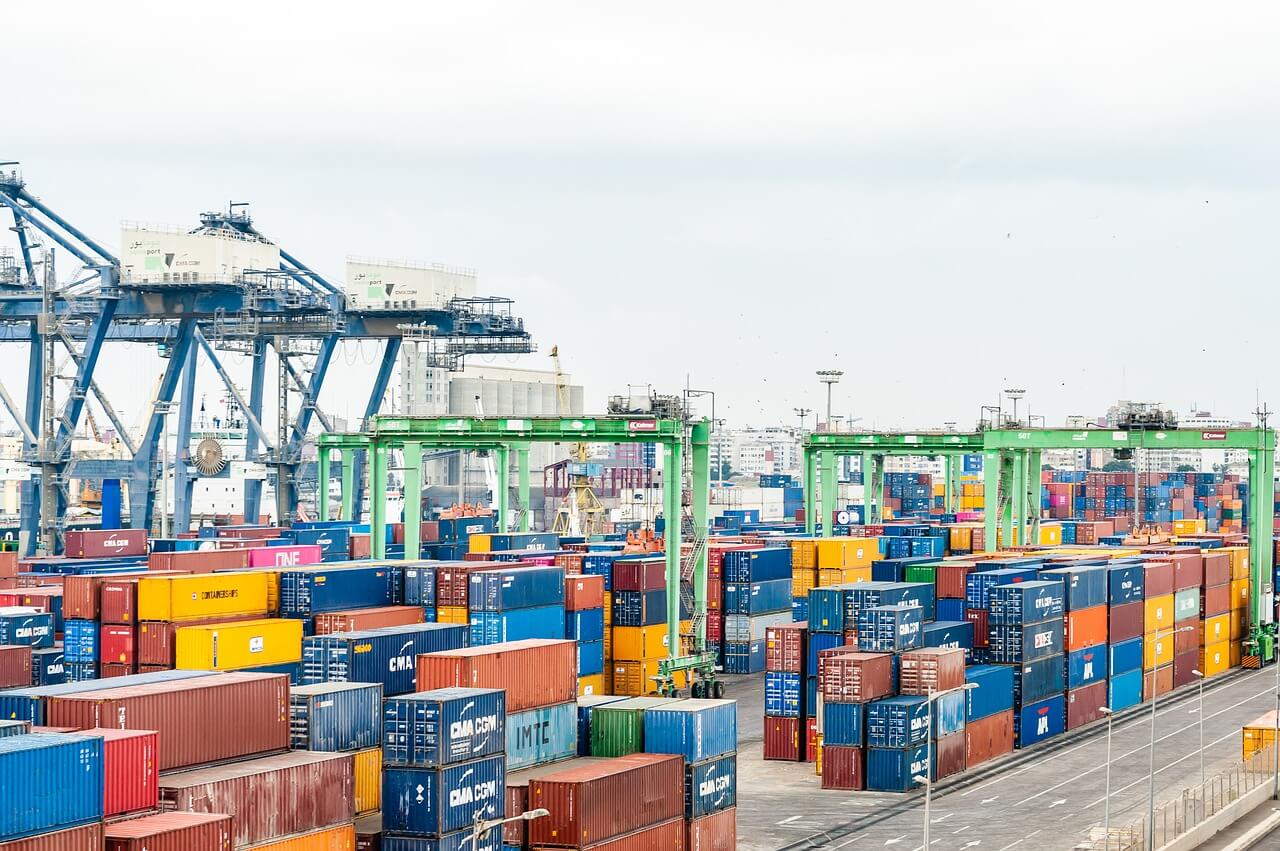
It is essential to keep efficient General Services in order to avoid interruptions of the production, sometimes extended.
Preventive Maintenance
Preventive Maintenance is a specific type of scheduled maintenance that is carried out at a stable frequency, using a specific check-list realized by Altameccanica, containing the activities list to be performed. The goals are many and can be summarised as follows:
- Extend equipment and installations life cycle;
- Reduce machine interruption due to breakdowns;
- Increase productivity;
- Prevent degradation of the quantity and the quality of goods produced;
- Reduce maintenance costs

Thanks to machine breakdown recording, analysis of maintenance manuals of machine and equipment, the meticulous plant inspections and the many years of Altameccanica personnel’s experience, specific and accurate lists of preventive maintenance activities are realized.
The preventive maintenance typologies are the following:
- Maintenance based on specific Settings: this is normally based on parameters reading or particular predefined metrics; once particular values are reached, maintenance is performed automatically and recorded on dedicated software;
- Periodic Maintenance: also called Cyclic Maintenance, it is performed at predetermined time intervals, independently of the actual use of the plants; in relation to frequency, it is normally divided into First, Second and Third Maintenance Level;
- Predictive Maintenance: this type of maintenance has become widespread in recent years thanks to technological progress. It is defined by measuring one or more machine parameters that provide fundamental indirect indications to understand the state of equipment and/or production plants.
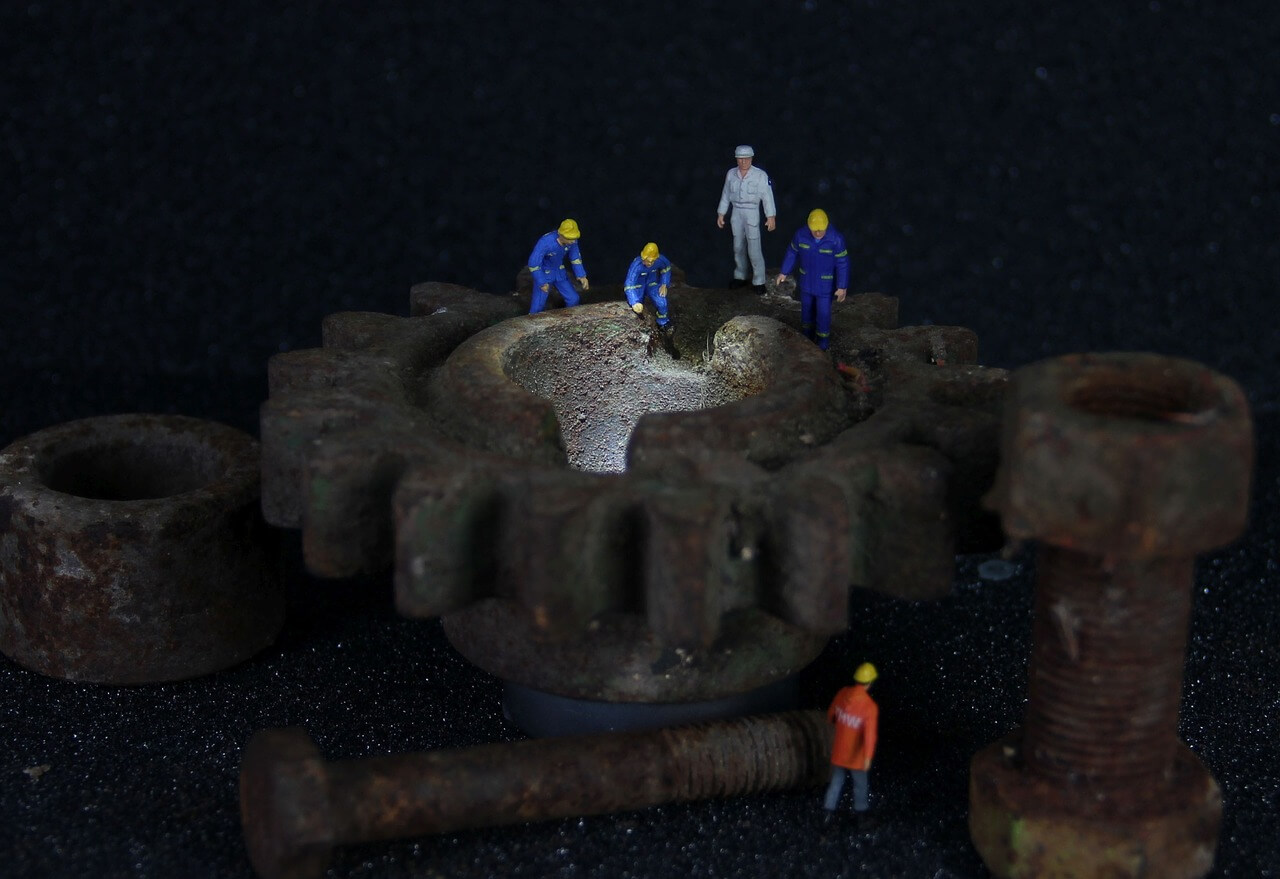
The definition of a well-structured and articulated Preventive Maintenance Management System allows to increase product quality standards as well as safety, increasing the lifespan of machines and saving considerable amounts of money for new investments.
Predictive Maintenance
Predictive Maintenance is the latest type of Maintenance that has assert itself in the Industrial field; it consists of identifying a series of parameters to be measured periodically, which are then processed using appropriate mathematical models, in order to calculate the remaining operating time of the machine and/or equipment or the drift time of a specific parameter, which would compromise the product quality.
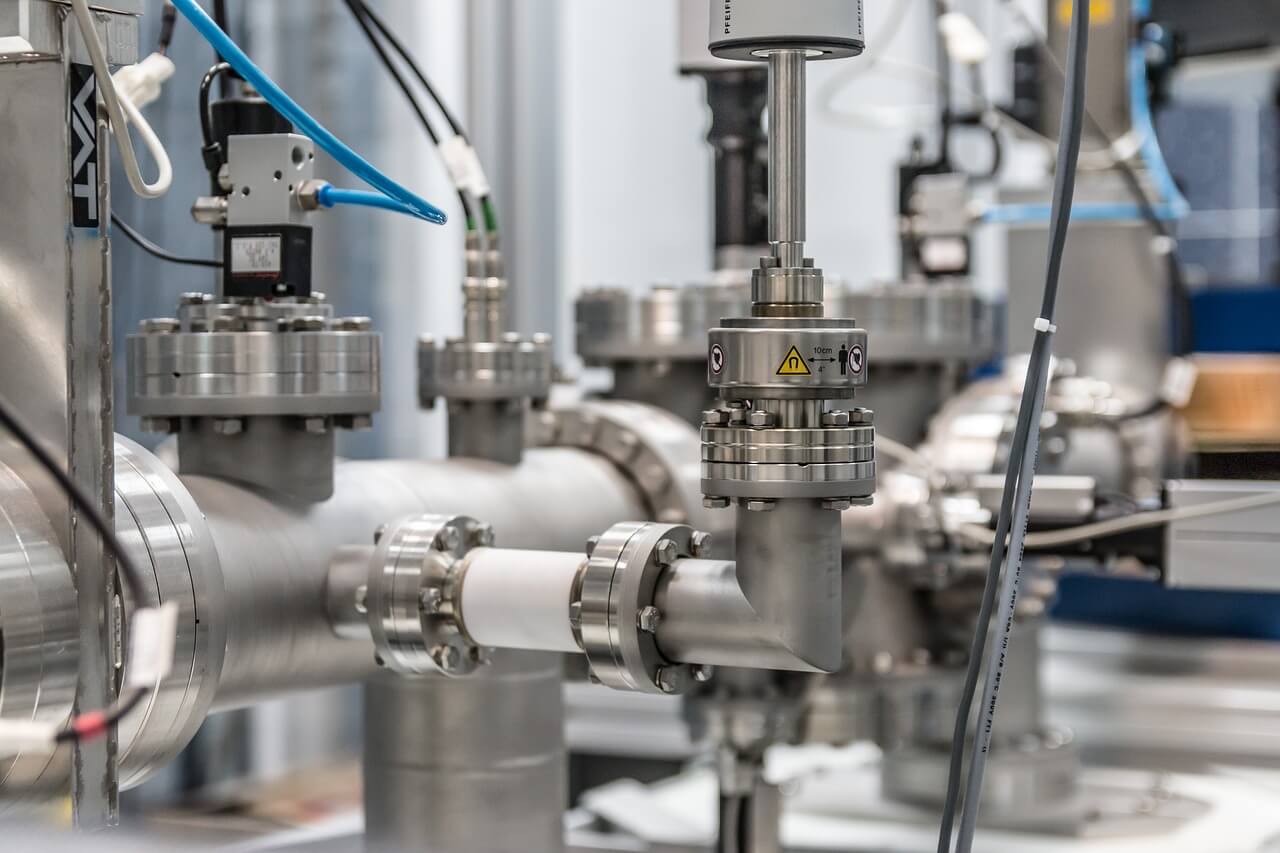
Among the Analyses that are commonly performed to implement Predictive Maintenance procedures are:
- Thermography: the increasing wear of mechanisms produces an increase of friction and thus of temperature; all this can be highlighted through the use of thermographic analysis;
- Analysis of Lubricants: engines operation releases metal particles into lubricants over time, which indicates a beginning of wear; by performing a periodic oil analysis it is possible to determine the state of wear and consequently take action before a breakdown;
- Vibrations: a misalignment of a mechanical mechanism chain normally leads to increase vibrations and an alarm bell about the malfunctioning of the system.
These are just some examples of parameters to be checked to implement a Predictive Maintenance plan.
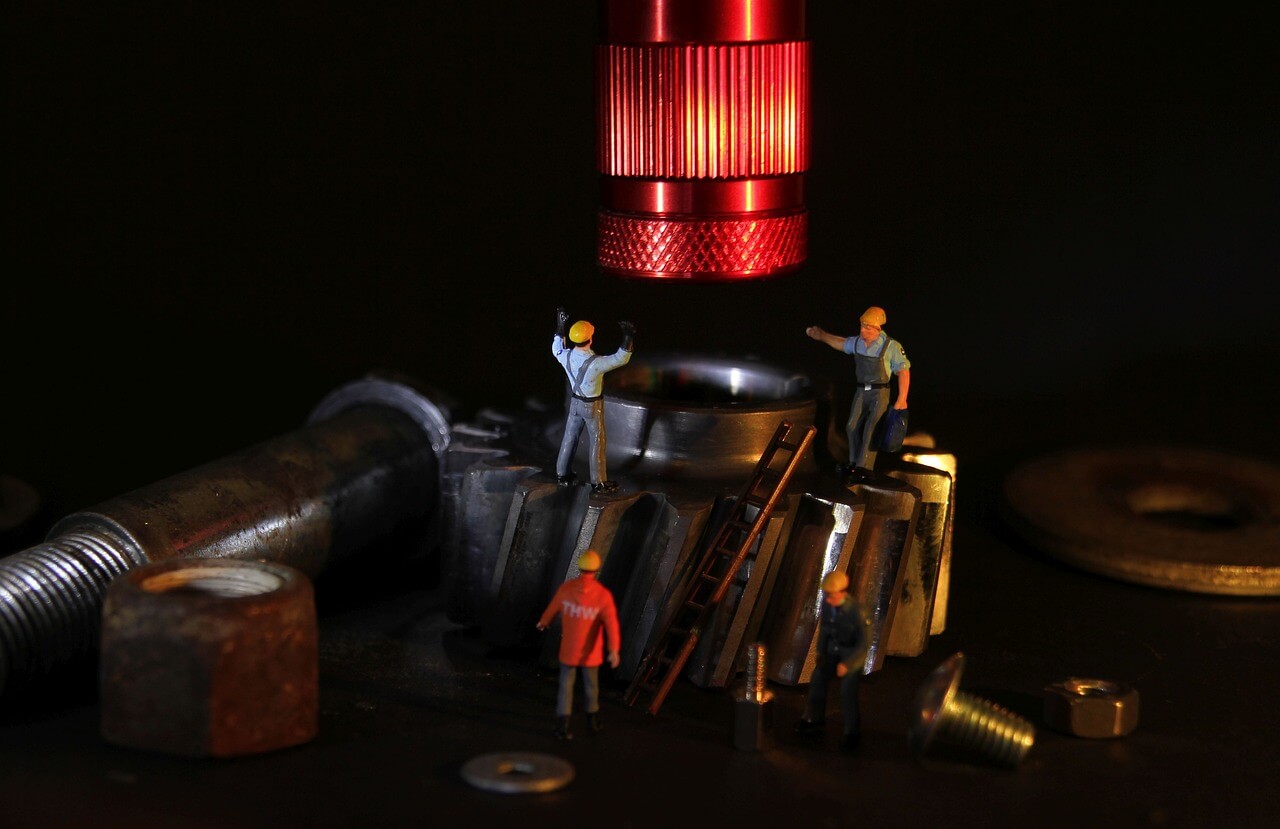
Compared to Preventive Maintenance or on Breakdown, which is carried out either when the machine has stopped or in a preventive manner (without knowing the actual remaining life of the component), Predictive Maintenance is a methodology with techniques which monitors the condition of the Machine and/or Equipment and tracks the performance during the usual work, so that any anomalies can be identified in advance and actions can be taken before there may be any breakdowns or malfunctions.
Maintenance Sectors
For a long time, the Maintenance Sector, in the Industrial sector, was underestimated, so much that there was no real specific area; it was only later, thanks to the economic analysis carried out on productivity losses, safety, non-production, reduced product quality, urgent interventions and damages caused by breakdowns, that the Maintenance Sector was valorized. This led to the development and implementation of a Maintenance Management System consisting of a specific staff organisation chart, a budget to be spent, the creation of a Spare Parts Warehouse and the recruitment of specialised staff for each sector.
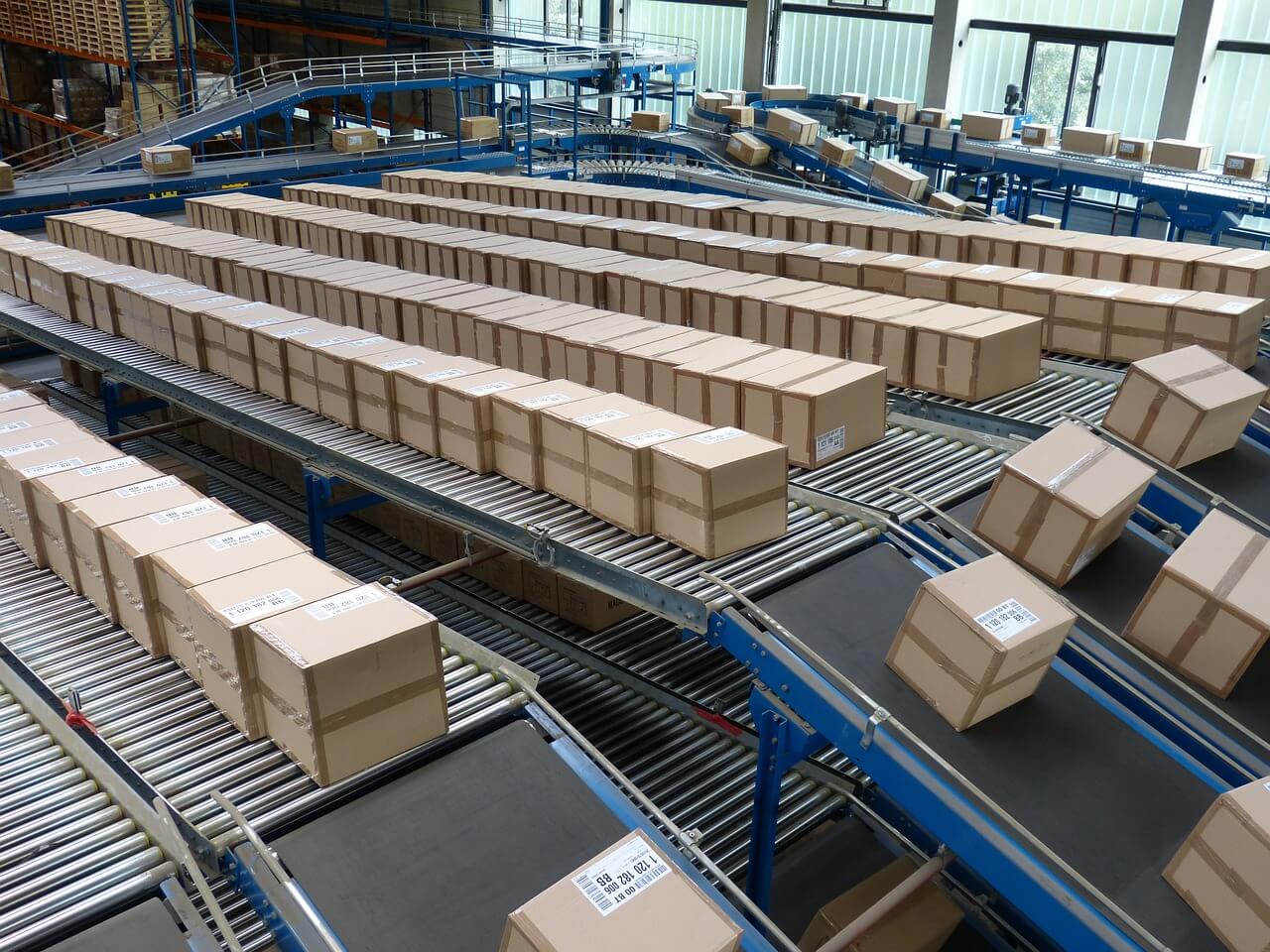
Generally, the Maintenance Management System in a production site can be divided into the following areas:
- Electrical Maintenance;
- Electronic Maintenance and PLC;
- Mechanical and Pneumatic Maintenance;
- Programming Sector;
- Toolmakers and Machine Tool Operators;
In the case of special plants, specific maintenance Sectors may be provided for.

Activities concerning the various Sectors are present in the operations of the different types of Maintenance: Autonomous Maintenance, Preventive or Scheduled Maintenance, Predictive Maintenance, Corrective Maintenance and Improvement Maintenance. The application of the different types of maintenance makes it possible to achieve high standards of quality, productivity, safety and, above all, to extend the useful life of machines and equipment whose replacement normally involves substantial investment.
PLC (Programmable Logic Control)
Programming and performing proper maintenance on PLC (Programmable Logic Controller) ensure the smooth working of all production system plants, minimising breakdowns and consequently downtime and so increasing productivity, quality and safety standards. Altameccanica is specialised in designing and implementing specific preventive maintenance plans, through a preliminary analysis of the machines present in our customers’ production plants. We are able to operate on the PLC of various manufacturers thanks to the experience and training of our highly specialised personnel.
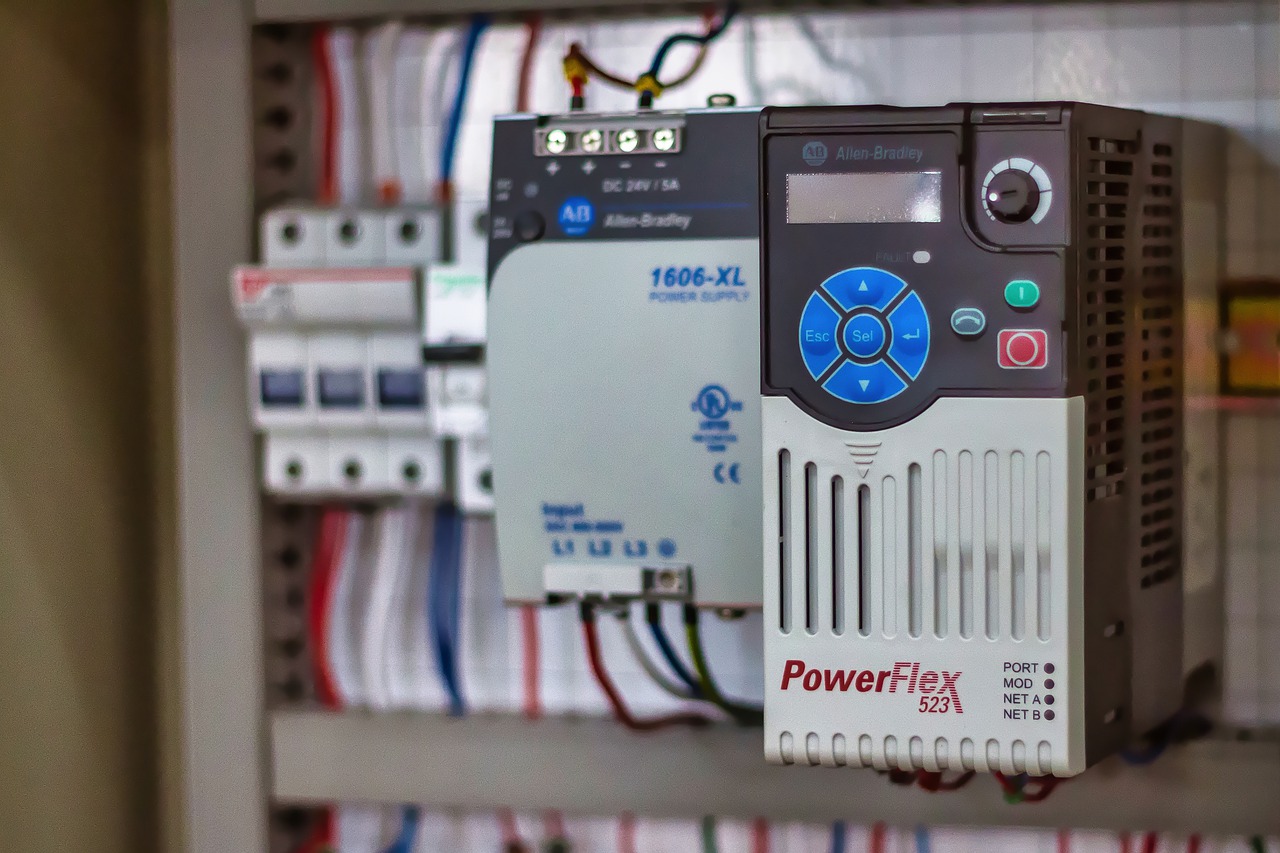
Ordinary and extraordinary preventive maintenance foresees a series of checks with different frequencies depending on the type of operation; normally they take place every six months and once a year, but if the PLC works under particularly severe conditions, checks can be carried out more frequently. Altameccanica has developed specific operating procedures and instructions using flow charts, visual instructions and charts.
Very often, diagnosis and/or useful information on the status of the controller are carried out using a laptop PC, interfaced directly with the PLC; the laptop can have a double function: programming unit or supervisory system. In this way, it is possible to extrapolate a serie of key information for the detection of breakdowns, anomalies and/or malfunctions. The same technique can also be used to modify the programme, bringing improvements in terms of production and safety.
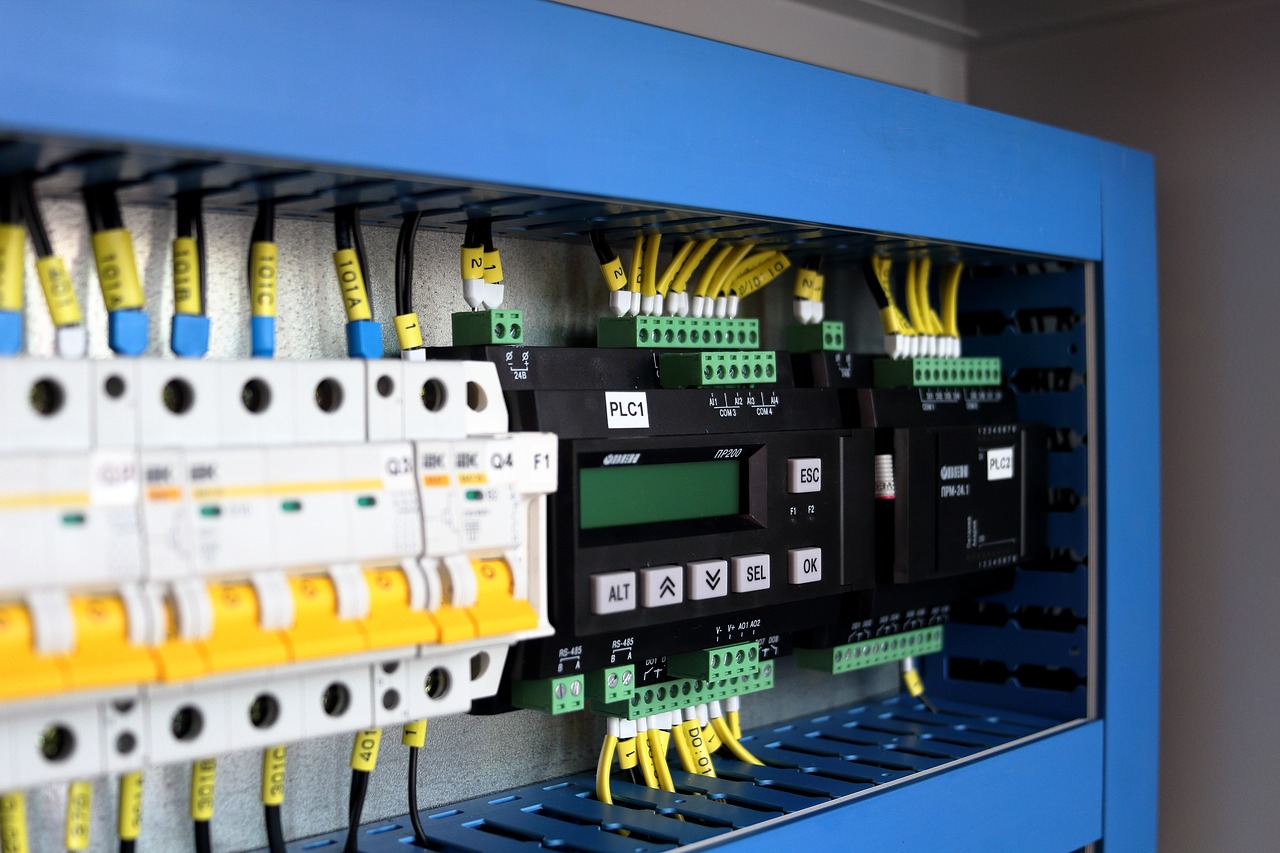
Thanks to maintenance scheduling and historical breakdowns analysis, it is possible to identify spare parts to be kept in stock so that the plants can be restored to functionality in a short time, thus minimising disruptions and machine stops.
Our clients
ALTAMECCANICA’s main goal is the customer satisfaction, thanks to the focus on quality, constant innovation and professionalism of our staff.
CONTACT US
ASK US FOR A FREE QUOTATION

















